Japan is now at a cultural tipping point, where foreign influences threaten to destroy local customs.
customs
Do you have what it takes to rub shoulders properly in Japan? Not literally though, that would be rude.
If you’ve stayed at a traditional Japanese inn with your partner, chances are you’ve experienced this custom before.
While the widespread presence of public toilets in convenience stores is great, it is also fraught with ambiguous customs and could, technically, even lead to criminal charges.
A Muslim man being detained at a Yokohama immigration center was served pork and has gone on a hunger strike in protest.
“You know you’ve been in Japan too long when you start bowing on the telephone” is an old classic. But how about those things that, even if you haven’t been here long, still make you stop and think, yup, this is definitely Japan!
Last year about 5 million Chinese tourists visited Japan, and Chinese website NetEase was kind enough to compile a list of seven of Japan’s most unusual habits according to them.
Every country has its own culture and unique customs that come with it. Understanding the social etiquette of the country before visiting can help to make the experience less overwhelming.
In China, you might be surprised to find that burping is considered a way of complimenting the chef or that a gift will be refused several times before it is accepted.
Here are 13 customs to know before traveling to China.
These days in Japan, you can get almost anything. Nonetheless, there are still some things that remain either hard to find or unavailable at all. We asked our RocketNews24 English writers, as well as a bevy of tourists and expats, what things they’ve made a point to bring into Japan in their suitcases.
If you’re headed to Japan either for a vacation or for a longer stay, you’ll want to take a peek at what items you may want to bring with you. It’s helpful to know, for example, that if you plan on sleeping on a queen size bed in Japan, you should be prepared to bring your own linen because Japan only sells bedding sets up to a double. If it’s Skittles candy you’re addicted to, bring a stash of that too. But some people have more extravagant tastes than others, so you’ll surely find yourself saying, “You brought WHAT in your suitcase??” a few times.
Join us for some head-scratching after the jump!
If the idea of your loved ones leaving this earth never to return again seems unfair, then you should consider the Japanese view of the afterlife. While nothing can change death itself, it is comforting to know that in Japan there is a special time of the year when the souls of the dead come back to visit the living. This is called Bon (or Obon using the honorific “o”) a holiday period from August 12-16 (exact dates may vary depending upon location), a time when the entire country takes a break to celebrate the “festival of the dead.” It’s a lively few days when the living and the dead can once again unite to eat together, drink together and share good times.
The Bon tradition gives the country some of the unique dances that Japan is so famous for. Tokushima’s Bon dance, called Awa Odori, for example, draws over one million tourists every year. Traditional Bon entertainment is so lively, colorful and intriguing that a Bon dance is a must-see on every traveler’s itinerary.
Today we’ll introduce you to a five things you should know about Obon. Needless to say, it’s a very exciting time to be in Japan as a tourist!
In Japan almost everyone hangs out their laundry to dry rather than using costly, energy-guzzling clothes dryers. Foreigners have no problems complying, but one quickly learns that underwear is special–you don’t hang it out with the rest of your clothes where others might see it (or try to see it). The “smallies” are to be hung up inside. When you think about it, it does make sense. But other things are harder for foreigners to get used to and yet others just don’t make sense at all to us so are harder to incorporate into our lifestyles here.
Pooling responses from expats living here in Japan and the RocketNews24 staff, today we’re sharing the most common things that we just can’t quite embrace like the Japanese do, no matter how hard we try. Join us after the jump as we reveal the secret life of gaijin…but shhhh, don’t tell anyone!
One of the first things you notice when you visit Japan is how nice and polite everyone seems to be. Shop staff bow to you, people greet you in the hotel lobby, even the guy at the combini sprints across the store to open up the second register when there’s more than one person waiting to be served.
But spend any prolonged amount of time here and you’ll realise that there are plenty of rude people here too (just like in the rest of the world…). And there are even a few niceties we in the west generally perform as a matter of habit that just aren’t part of the Japanese way of doing things.
So just how are Westerners unintentionally schooling the Japanese in manners?
Not so long ago, a friend of mine from the UK came to visit me here in Japan. After showing him around town and making sure to take him to all of the most popular tourist spots, he remarked that quite a few of the subtle behaviours Japanese people exhibit seemed, while in no way offensive, remarkably different to those of our own countrymen. As we worked through a couple of the more unusual customs and behaviours that my friend had noticed, it struck me that at some point during my eight years of living here I had come to accept the everyday quirks of the people around me as entirely normal and not in the slightest bit odd.
Last year, we discussed the 10 things that we love and the 10 things we just can’t stomach about Japan, but today we at RocketNews24 felt it was time to present you with a list of random but genuine observations, from the peculiar to the downright endearing, about the Japanese people themselves. Enjoy!
Coming from abroad to live in Japan, there’s a lot to love–and there’s a lot to be frustrated about as well. One thing that nearly everyone loves about Japan though is the trains! With many of us coming from rural areas where you either drive or walk, being able to hop on a train pretty much any time anywhere can sometimes feel nearly miraculous. Tired? Distracted? Had too much to drink? Raining? None of that matters, because you’re on a train!
And we’re not the only ones who think so either. Today we’ve compiled a list of foreign residents’ favorite things about trains in Japan. Check them out and see if your favorites made the list!
As public perception of smoking becomes increasingly negative, and with the number of smoking areas in restaurants and cafes in Japan becoming fewer and fewer each year, it’s fair to say that those little white sticks that once brought so much pleasure to so many are perhaps on their way out.
As people find themselves becoming more and more irritated by cigarette smoke as they walk though crowded streets, and residents grow sick of sweeping up discarded cigarette butts in their neighbourhoods, smoking anywhere outside of specially designated kitsuen (smoking) zones has become a punishable offence in many urban areas of Japan.
The times, they are a-changing.
But even with so many turning their backs of tobacco and labelling it as un-cool, few could have predicted that a company as large as Hoshino Resorts would actively advertise the fact that they no longer accept job applications from smokers.
Our correspondent who travelled to North Korea recently met with an unwelcome reception at Narita airport as he returned via Beijing. “Customs officials, without any idea it was about to happen, spent about 10 minutes going through my things” he described. “It’s a sketchy country, so I guess they have to do these things, but still – it’s disappointing.”
The result of the search was that he had to give up every single souvenir he got in North Korea.


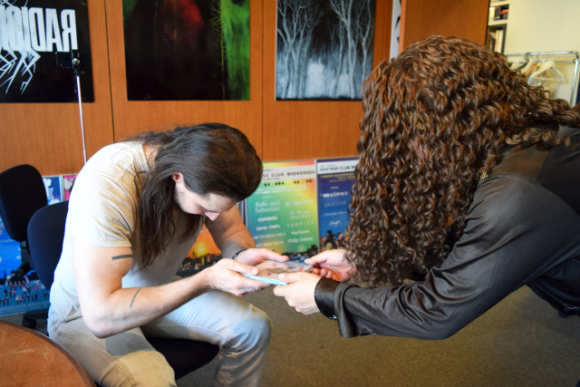
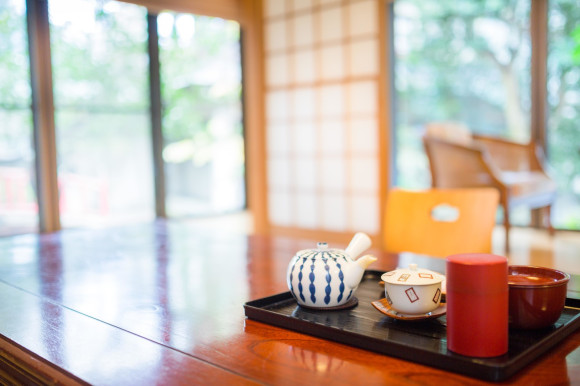
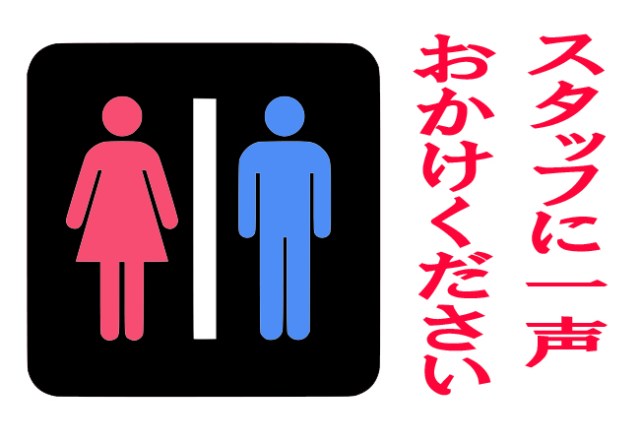

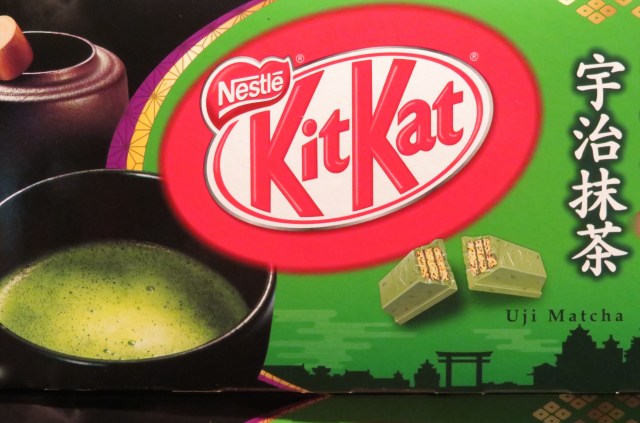
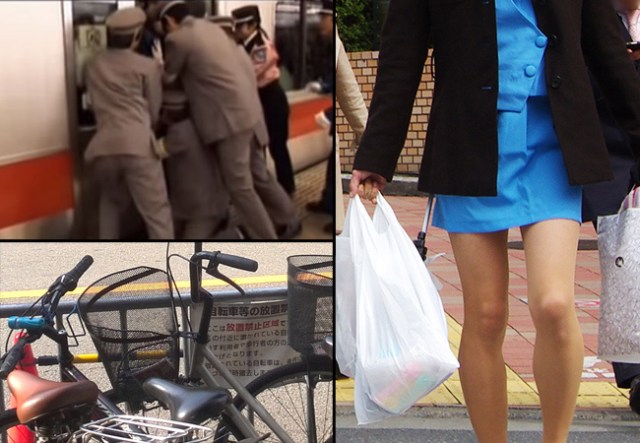

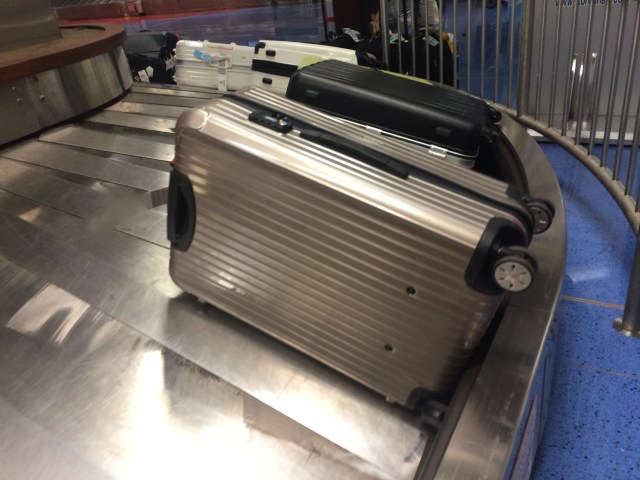
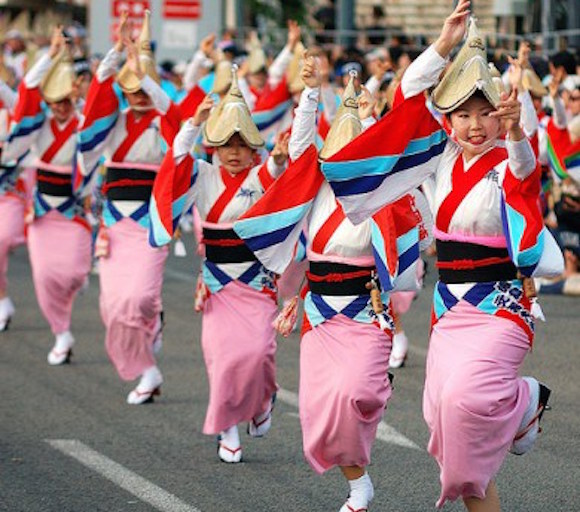

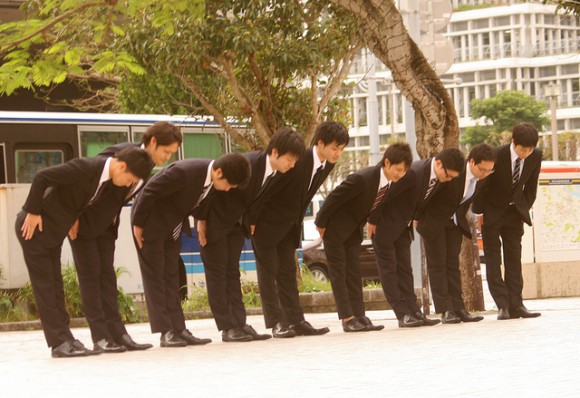
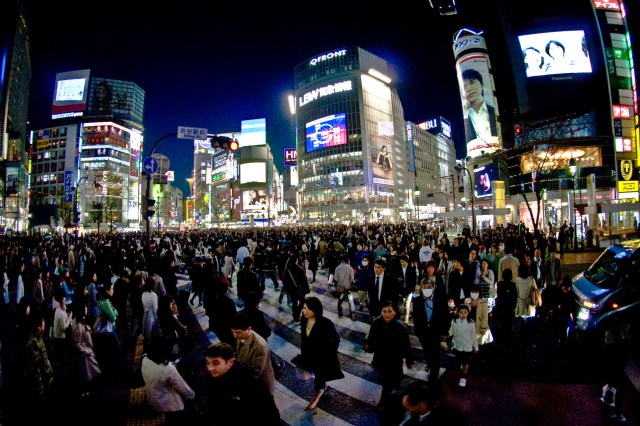
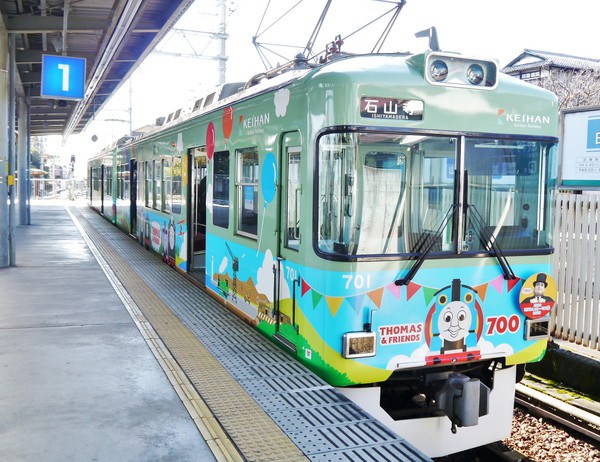
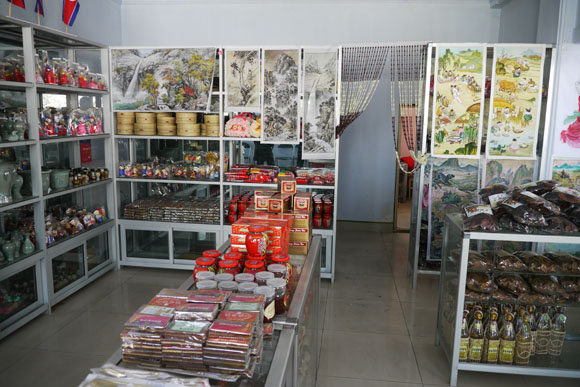
 Starbucks Japan releases first-ever Hinamatsuri Girls’ Day Frappuccino
Starbucks Japan releases first-ever Hinamatsuri Girls’ Day Frappuccino Japan Extreme Budget Travel! A trip from Tokyo to Izumo for just 30,000 yen [Part 1]
Japan Extreme Budget Travel! A trip from Tokyo to Izumo for just 30,000 yen [Part 1] Japanese restaurant chain serves Dragon Ball donuts and Senzu Beans this spring
Japanese restaurant chain serves Dragon Ball donuts and Senzu Beans this spring Which convenience store onigiri rice balls are the most popular? Survey reveals surprising results
Which convenience store onigiri rice balls are the most popular? Survey reveals surprising results Tokyo street sweets: The must-snack treats of Nakano’s Refutei
Tokyo street sweets: The must-snack treats of Nakano’s Refutei Japan Extreme Budget Travel! A trip from Tokyo to Izumo for just 30,000 yen [Part 2]
Japan Extreme Budget Travel! A trip from Tokyo to Izumo for just 30,000 yen [Part 2] Satisfy your sweet tooth with cheesecake and more all-you-can-eat sweets at Cheese Garden
Satisfy your sweet tooth with cheesecake and more all-you-can-eat sweets at Cheese Garden Tokyo Station staff share their top 10 favorite ekiben
Tokyo Station staff share their top 10 favorite ekiben 566 million yen in gold bars donated to Japanese city’s water bureau
566 million yen in gold bars donated to Japanese city’s water bureau Princess Mononoke gets first-ever IMAX screenings to show off gorgeous new remaster【Video】
Princess Mononoke gets first-ever IMAX screenings to show off gorgeous new remaster【Video】 Highest Starbucks in Japan set to open this spring in the Tokyo sky
Highest Starbucks in Japan set to open this spring in the Tokyo sky The 10 most annoying things foreign tourists do on Japanese trains, according to locals
The 10 most annoying things foreign tourists do on Japanese trains, according to locals Tokyo Skytree turns pink for the cherry blossom season
Tokyo Skytree turns pink for the cherry blossom season Yakuzen ramen restaurant in Tokyo is very different to a yakuza ramen restaurant
Yakuzen ramen restaurant in Tokyo is very different to a yakuza ramen restaurant Shibuya Station’s Hachiko Gate and Yamanote Line stairway locations change next month
Shibuya Station’s Hachiko Gate and Yamanote Line stairway locations change next month Starbucks Japan releases new sakura goods and drinkware for cherry blossom season 2026
Starbucks Japan releases new sakura goods and drinkware for cherry blossom season 2026 Starbucks Japan adds new sakura Frappuccino and cherry blossom drinks to the menu
Starbucks Japan adds new sakura Frappuccino and cherry blossom drinks to the menu Japan’s new “Cunte” contact lenses aren’t pronounced like you’re probably thinking they are
Japan’s new “Cunte” contact lenses aren’t pronounced like you’re probably thinking they are Japan’s newest Shinkansen has no seats…or passengers [Video]
Japan’s newest Shinkansen has no seats…or passengers [Video] Foreigners accounting for over 80 percent of off-course skiers needing rescue in Japan’s Hokkaido
Foreigners accounting for over 80 percent of off-course skiers needing rescue in Japan’s Hokkaido Super-salty pizza sends six kids to the hospital in Japan, linguistics blamed
Super-salty pizza sends six kids to the hospital in Japan, linguistics blamed Starbucks Japan unveils new sakura Frappuccino for cherry blossom season 2026
Starbucks Japan unveils new sakura Frappuccino for cherry blossom season 2026 Foreign tourists in Japan will get free Shinkansen tickets to promote regional tourism
Foreign tourists in Japan will get free Shinkansen tickets to promote regional tourism Take a trip to Japan’s Dododo Land, the most irritating place on Earth
Take a trip to Japan’s Dododo Land, the most irritating place on Earth Naruto and Converse team up for new line of shinobi sneakers[Photos]
Naruto and Converse team up for new line of shinobi sneakers[Photos] Is China’s don’t-go-to-Japan warning affecting the lines at a popular Tokyo gyukatsu restaurant?
Is China’s don’t-go-to-Japan warning affecting the lines at a popular Tokyo gyukatsu restaurant? Survey asks foreign tourists what bothered them in Japan, more than half gave same answer
Survey asks foreign tourists what bothered them in Japan, more than half gave same answer Japan’s human washing machines will go on sale to general public, demos to be held in Tokyo
Japan’s human washing machines will go on sale to general public, demos to be held in Tokyo Starbucks Japan releases new drinkware and goods for Valentine’s Day
Starbucks Japan releases new drinkware and goods for Valentine’s Day We deeply regret going into this tunnel on our walk in the mountains of Japan
We deeply regret going into this tunnel on our walk in the mountains of Japan Studio Ghibli releases Kodama forest spirits from Princess Mononoke to light up your home
Studio Ghibli releases Kodama forest spirits from Princess Mononoke to light up your home Major Japanese hotel chain says reservations via overseas booking sites may not be valid
Major Japanese hotel chain says reservations via overseas booking sites may not be valid Put sesame oil in your coffee? Japanese maker says it’s the best way to start your day【Taste test】
Put sesame oil in your coffee? Japanese maker says it’s the best way to start your day【Taste test】 No more using real katana for tourism activities, Japan’s National Police Agency says
No more using real katana for tourism activities, Japan’s National Police Agency says Japan Extreme Budget Travel! A trip from Tokyo to Izumo for just 30,000 yen [Part 2]
Japan Extreme Budget Travel! A trip from Tokyo to Izumo for just 30,000 yen [Part 2] Satisfy your sweet tooth with cheesecake and more all-you-can-eat sweets at Cheese Garden
Satisfy your sweet tooth with cheesecake and more all-you-can-eat sweets at Cheese Garden Tokyo Station staff share their top 10 favorite ekiben
Tokyo Station staff share their top 10 favorite ekiben 566 million yen in gold bars donated to Japanese city’s water bureau
566 million yen in gold bars donated to Japanese city’s water bureau Princess Mononoke gets first-ever IMAX screenings to show off gorgeous new remaster【Video】
Princess Mononoke gets first-ever IMAX screenings to show off gorgeous new remaster【Video】 Pokémon hotel rooms spawn in Tokyo and Kyoto
Pokémon hotel rooms spawn in Tokyo and Kyoto Survey finds that one in five high schoolers don’t know who music legend Masaharu Fukuyama is
Survey finds that one in five high schoolers don’t know who music legend Masaharu Fukuyama is Legendary crescent moon katana, one of Japan’s Five Swords Under Heaven, now on display in Tokyo
Legendary crescent moon katana, one of Japan’s Five Swords Under Heaven, now on display in Tokyo Testing 23 different yakiniku dipping sauces from the Japanese supermarket to find the top three
Testing 23 different yakiniku dipping sauces from the Japanese supermarket to find the top three Japan has only one airport named after a samurai, so let’s check out Kochi Ryoma【Photos】
Japan has only one airport named after a samurai, so let’s check out Kochi Ryoma【Photos】